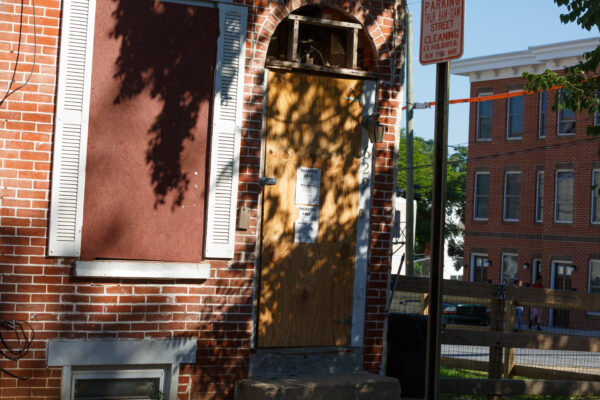Will this bill hurt landlords, protect tenants that don’t pay their rent, cost taxpayers, and slow down the eviction process?
These are a few of the most common concerns we’ve heard about Senate Bill 101 (now formally known as SS 1 for SB 101), the right to counsel for eviction defense bill that’s currently up for consideration in the state House of Representatives.
The simple answer to all of these questions is: no.
Sponsored by Senator Bryan Townsend, SB 101 aims to implement a statewide right to counsel for tenants facing eviction and establish protections that will help keep renters in their homes, such as eviction diversion programs, limiting the amount of debt a landlord can file for eviction over, and allowing tenants to stay in their homes if they pay all debt owed to a landlord.
In a state that hit 18,000 evictions in a year prior to the pandemic, SB 101 isn’t meant to give an unfair advantage to tenants. The goal of this legislation is to simply level the playing field by bridging the gap between the 86% of landlords who have representation in eviction proceedings and the mere 2% of tenants who have the benefit of their own representation. Because eviction proceedings are hard to navigate, and no one should have to go through that alone.
SB 101 Does Not:
- Punish landlords. We know that most landlords want to do the right thing and that they also need to protect their own property and investments. This bill will benefit landlords — not punish them. When tenants are represented, resolutions are more likely to be completed out of court, resolutions are fairer to both parties, agreements are more likely to be upheld, and landlords are more likely to receive amounts due without costly collection efforts.
- Slow down eviction processes. This bill doesn’t add any additional mediation measures to the eviction process, it simply strengthens the mediation process with the proposed pre-eviction diversion program. By design, the proposed program would resolve most eviction issues faster, and more satisfactorily, than those that go through a court hearing.
- Force landlords to hire legal representation. This bill only applies to Delaware tenants who fall below the 200% federal poverty guideline, and representation is only guaranteed at the initial trial, not for appeals. Right to counsel, in practice, will result in less need for legal representation for landlords, because more cases will be resolved through mediation, saving landlords from attorney fees, filing fees, and other costs associated with a court proceeding.
- Protect tenants at all costs. This bill includes exemptions to the residential eviction diversion program that include when a tenant has made threats of substantial or irreparable harm to the landlord’s or other tenant’s person or property.
SB 101 Does:
- Level the playing field. The bill creates a right to legal counsel for evictions for individuals or households with income under 200% of federal poverty guidelines, with a 3 year phase-in period.
- Promote intervention before eviction proceedings take place. The bill creates a pre-eviction diversion program that will require the parties to mediate before the eviction is filed, which will help resolve many disputes quickly, amicably, and fully. It will prevent unnecessary displacement, spare court resources, and help connect tenants and landlords with the rental assistance program.
- Put protections for unnecessary eviction in place. The bill prohibits landlords from filing for eviction unless the tenant owes at least one month's rent or $500 — whichever is greater — and prohibits landlords from continuing an eviction action if the tenant pays all rent due. Currently in Delaware, there is no minimum amount of money that needs to be in dispute for a landlord to file an eviction action.
- Give tenants a second chance. The bill allows tenants to stay in their home if they pay all back rent, fees, and costs after filing but before eviction.
- Give assistance to those who suffered financial effects from the pandemic. The bill provides COVID-19 specific relief for certain tenants whose evictions were stayed "in the interests of justice" during the pandemic, per Governor Carney's Emergency Declaration.
- Save taxpayer dollars. This bill promotes substantial cost savings in Delaware. For every dollar invested in a right to counsel for low-income tenants facing eviction in Delaware, a recent report from Stout conservatively estimates a cost savings to Delaware of at least $2.76 — money currently being spent on resources like homeless shelters and other housing displacement services.
SB 101 is about economic recovery, a more fair housing system, and providing assistance for eviction proceedings to benefit both tenants and landlords.
TAKE ACTION: Call your House Representative and ask them to vote “yes” on SB 101!
MAKE A CALL
(Note: this button will take you to an action page, where you can choose to make a call. It does not automatically make a call when you click this button.)




